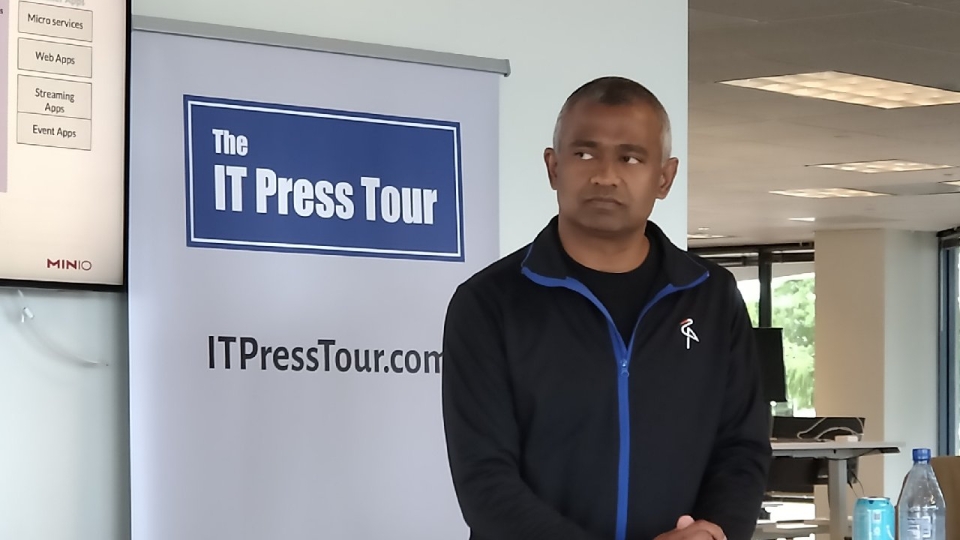
MinIO is a data storage company in a hurry, and it isn't going to take any grief from anybody in the process.
It is expanding at a phenomenal rate as it gets its Kubernetes-native object storage system into the hands of developers, as they meet the multi-cloud requirements of their enterprises.
At the IT Press Tour of Colorado and Silicon Valley this week, which IT Europa is attending, MinIO said it’s optimised object storage [with this type of storage traditionally seen as slow] offering was winning through in the market.
Jonathan Symonds, chief marketing officer at MinIO, said: “Object storage is not just an archival store, it is prevalent in many more areas now than it used to be. It is an enterprise solution that has gained traction in recent years.”
Asked about growth at the company, he said MinIO had seen triple-digit revenue growth rates in at least eight of the last quarters, and was now seeing “tens of millions of dollars” in annual sales. As a private company, the firm is not obliged to disclose actual figures.
The firm reached “unicorn” status - being worth over $1 billion - last year after a Series B funding round of $103m. Since then, there has been a 50% increase in staff to over 70, and Symonds says the company is “cash rich”, which is useful considering the current industry funding squeeze in response to the overall declining business climate.
In fact, Symonds reveals, MinIO has “not touched a dollar” of that funding round, and “has no idea how to spend it”, as costs are currently being covered by customer business.
At the same time, MinIO is building out its ecosystem, as other cloud storage and data management vendors now focus on the demand for cloud file and object storage software from their channel and end customers.
Veeam, for instance, is fleshing out its support for object storage in partnership with Scality. At the VeeamON partner and customer event in Miami last month, Scality enthused about the opportunities it was now seeing in object storage, but it wasn't the only one doing so at the event.
MinIO was among other packed stands that were keen to demonstrate they were part of a vibrant ecosystem.
But there are provisos to these alliances, and that includes giving credit to each others' technology efforts. MinIO has come out fighting to "protect" its open source software from alleged infringements by other vendors.
In very public spats with the likes of Nutanix and WEKA.io, for instance, MinIO has claimed the use of its code has not been fully credited in some of those companies' products.
None of this has been handed to lawyers to sort out, yet, but a major concern for MinIO is that arguments over code use in products could cause confusion among partners and end customers.
For its part, Nutanix has admitted some unintentional failed code management oversight when it comes to part of MinIO's claims, while WEKA.io has flatly disputed MinIO's accusations.
AB Periasamy (pictured), CEO and co-founder of MinIO, said of the mini code war: “It is disrespecting my work not to share it, that’s why I’m in open source – we have to collaborate and share.
“But proprietary vendors cannot take our software and pass it off as their own outside our license.”
He added: “I like it when other companies take our software and make it better, but they have to abide by our license and disclose we’re in their software.
“We’d rather educate companies, rather than publicly condemn them and cause fear in the open source market. We do know open source contracts are complicated and difficulties can be caused, but there was no excuse for this.”
As said above, both Nutanix and WEKA.io have their own story to tell, but the channel and their end customers will be hoping any uncertainty over product sale and use is ironed out.
More from the IT Press Tour to follow...

